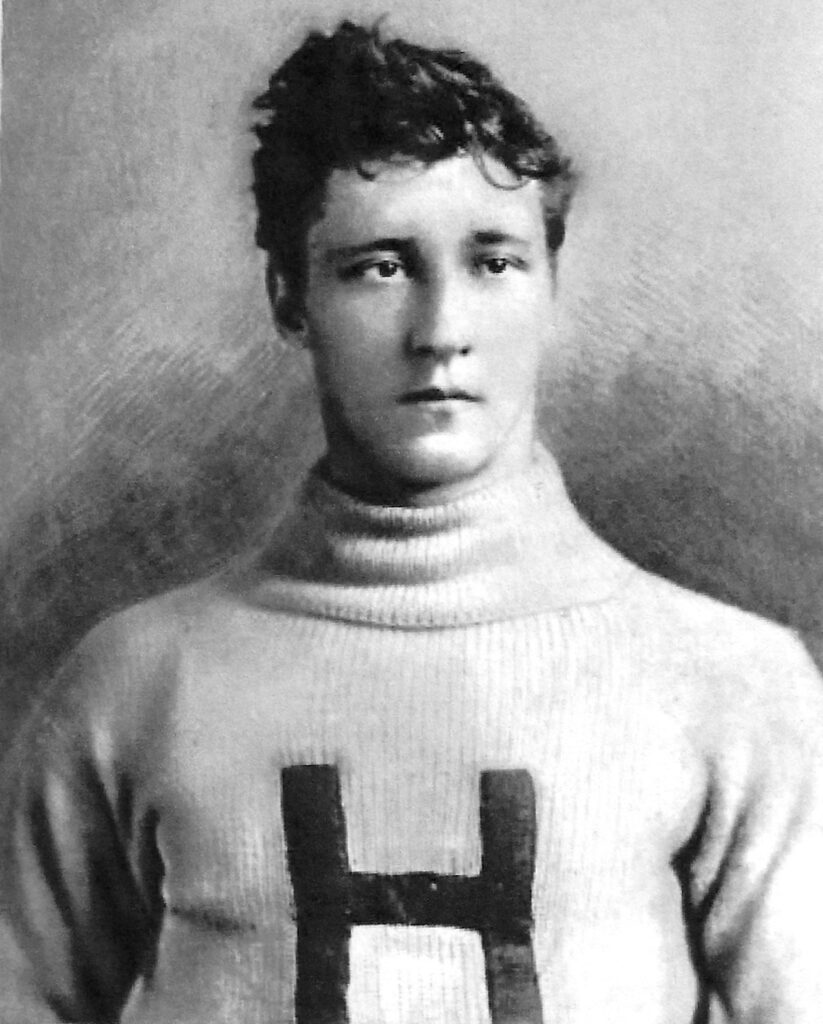
Sport: Football
Born: April 2, 1871
Died: December 24, 1897
Town: Clifton, New Jersey
Marshall Newell was born April 2, 1871 in Clifton, NJ. He was the son of attorney Samuel Newell, a Harvard graduate. In the early 1880s, the family moved to a farm in Great Barrington, in the Berkshire Mountains. The Newells were comfortable but hardly well-off; Marshall worked the family’s property every day. A fine student and strong athlete, he attended Philips Exeter Academy, graduating in 1890. He was introduced to football at Exeter, playing first on his class team and then on the school varsity. Though hardly a giant, years of farm work gave him a massive upper body, which served him well in this sport, which was played largely above the waist in those early days.
In 1890, Marshall enrolled at Harvard and played on the unbeaten football team, which was recognized as the national champion. The Crimson outscored opponents 555 to 12. Marshall, whose hard and sure tackling struck fear into enemy runners, was an All-American for the first of four years in a row. Marshall also competed for the Harvard crew. Each summer, he returned to Great Barrington to work on the farm.
The Crimson lost only three games during Marshall’s four seasons—all to arch-rival Yale. He was an invaluable on-field leader who kept on his teammates in the waning minutes of games, whether they were close in score or not. He was immensely popular around campus—everyone called him “Ma”—and said to embody the university’s student-athlete ideal.
After graduating in 1894, Marshall split his time between the farm, an employer in Boston and coaching. He coached the Cornell football team for two years. He also returned to Harvard to help coach various athletic teams, including the football varsity.
Office work did not suit Marshall; he only felt comfortable when he was outdoors. In 1896, Marshall landed a position as a superintendent by the Boston & Albany Railroad and assigned to track inspection duty in Springfield, MA. Late on Christmas Eve in 1897, Marshall was tending to business in the freight yard when he was struck and killed by a train that was backing up. He was 26.